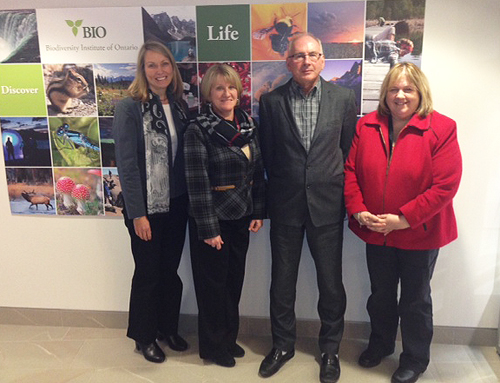
The Canadian Food Inspection Agency’s Martine Dubuc, chief food safety officer and vice president (science branch), and Karen Jessett, executive director of the Ontario Laboratory Network, visited campus Monday to tour the Biodiversity Institute of Ontario (BIO).
They were hosted by Sherri Cox, executive director of global development, innovation and research in the Office of Research, and Paul Hebert, a U of G integrative biology professor and BIO director.
The group discussed the importance of current and future technologies developed at BIO that would be suitable for enhancing food security, authenticity and safety.
DNA barcoding, which was developed by Hebert, has been honed into a multifaceted international research program. Animal and plant species can be identified using only short standardized regions of genetic material. This analytical approach works for all life stages and will eventually allow biologists to rapidly identify species from even a snippet of DNA.
Currently, the technique is being used to detect meat and seafood fraud and alleviate consumer fears. It has also been adopted by regulatory agencies to authenticate and identify other mislabelled food and consumer products.
DNA barcoding has also led to the discovery of hundreds of overlooked species of birds, bats, butterflies, fishes and marine algae.